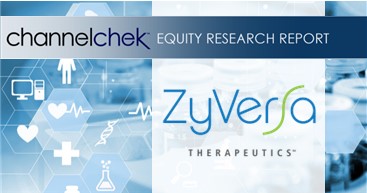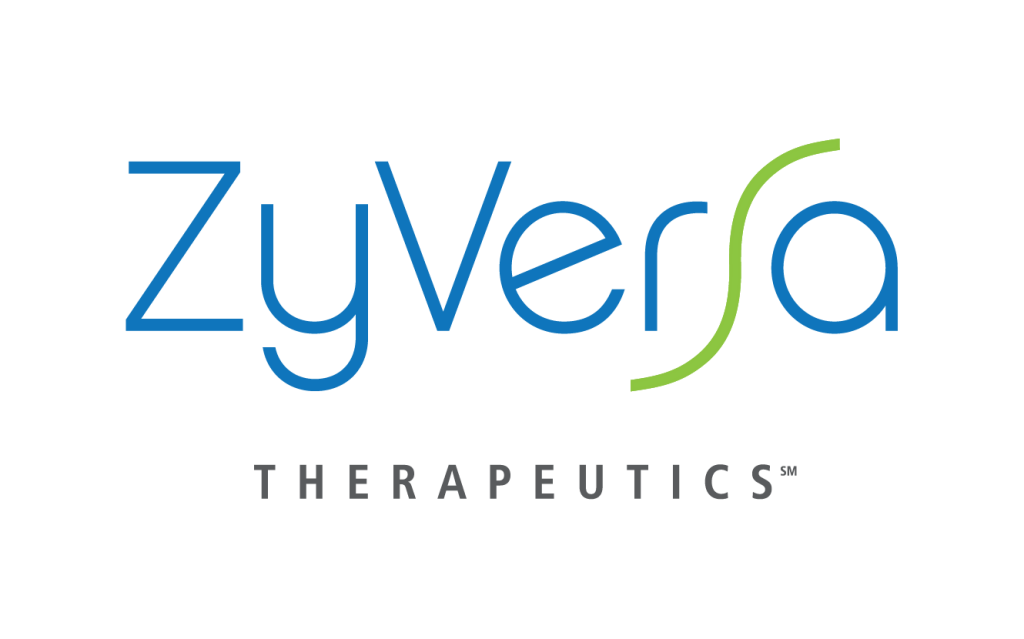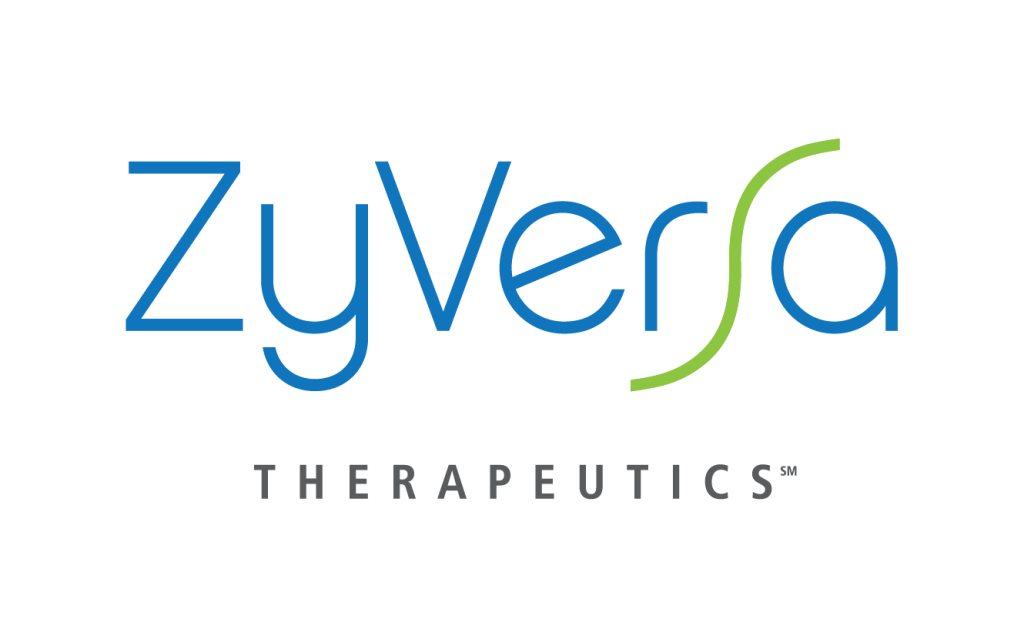Research News and Market Data on ZVSA
Oct 17, 2024
PDF Version
- Lead indication for ZyVersa’s Inflammasome ASC Inhibitor IC 100 is obesity with metabolic complications.
WESTON, Fla., Oct. 17, 2024 (GLOBE NEWSWIRE) — ZyVersa Therapeutics, Inc. (Nasdaq: ZVSA, or “ZyVersa”), a clinical stage specialty biopharmaceutical company developing first-in-class drugs for treatment of inflammatory and renal diseases, announces that Stephen C. Glover, Co-Founder, Chairman, Chief Executive Officer, and President, has issued a Letter to Shareholders highlighting obesity development plans for Inflammasome ASC Inhibitor IC 100 with anticipated milestones over the next nine months. The full text of the letter follows.
A MESSAGE FROM OUR PRESIDENT AND CHIEF EXECUTIVE OFFICER
To my fellow shareholders,
As announced in late July, ZyVersa selected obesity with metabolic complications as the lead indication for Inflammasome ASC Inhibitor IC 100. Selection of this indication is consistent with our mission to restore health and transform patient lives through innovation. Although GLP-1 agonist therapy has changed the treatment paradigm for obesity with unsurpassed weight loss, significant unmet medical needs remain. A critical unmet need is for therapies to address the chronic systemic inflammation of obesity that causes life-altering metabolic comorbidities such as cardiovascular diseases, type 2 diabetes, non-alcoholic fatty liver disease, and even neurodegenerative diseases such as Parkinson’s and Alzheimer’s diseases. Based on IC 100’s highly differentiated mechanism of action, it is anticipated that IC 100 will control the chronic systemic inflammation of obesity, attenuate development and/or progression of associated metabolic comorbidities, and augment weight loss when added to GLP-1 agonist therapy.
Selection of obesity with metabolic complications as the lead indication for IC 100 is also consistent with ZyVersa’s goal to drive shareholder value. The obesity drug revolution has led to a 10-fold increase in private venture dollars flowing into the category over the last 5 years and high deal volume. This is expected to continue with investment opportunities in R&D innovation to develop GLP-1 agonist add-on therapies to address unmet needs. This is exemplified by some of the latest transactions:
- Oct 10, 2024: Lilly announced up to $1.4 billion plus upfront payment and royalties for expanded collaboration with KeyBioscience for rights to dual amylin calcitonin receptor agonists for obesity and complications (e.g., osteoarthritis).
- September 25, 2024: Bioage announced an upsized $198 Million IPO driven by their APJ agonist in development for muscle preservation and improved metabolism to be used in combination with GLP-1 agonist therapy.
- September 23, 2024: Sanofi announced a $27 Million strategic investment in Ventyx Biosciences’ NLRP3 inhibitor VTX3232, which is phase 2 for obesity with cardiovascular complications and Parkinson’s disease.
- September 4, 2024: Lilly announced a collaboration with Haya Therapeutics for up to $1 Billion for drug discovery in obesity and related metabolic conditions.
- August 10, 2024: Novo Nordisk announced acquisition of Inversago Pharma, valued up to $1.075 Billion. Inversago develops CB1 receptor-based therapies for obesity, diabetes, and complications associated with metabolic disorders.
We are excited about the potential for Inflammasome ASC Inhibitor IC 100 as an add-on therapy to GLP-1 agonists to help restore health and transform the lives of patients living with obesity and its associated comorbidities. We recently reviewed the preclinical data supporting IC 100 with our newly formed Obesity, Metabolic, and Inflammatory Disease Scientific Advisory Board. Advisory Board members indicated that IC 100’s mechanism of action supports its rationale for use as an add-on treatment to GLP-1 agonists to address the chronic inflammation of obesity and its associated metabolic complications. They also provided excellent input on our planned DIO obesity model studies to strengthen their design and endpoints for proof-of-concept of IC 100’s potential as a treatment for obesity with metabolic complications.
Following are key IC 100 short-term obesity development milestones that we expect to achieve:
Q4-2024: Initiate IC 100 monotherapy study using semaglutide as a comparator in DIO mice.
Q1- 2025: Initiate IC 100 combination study with semaglutide in DIO mice.
Q2-2025: File IND.
Q3-2025: Initiate IC 100 phase 1 trial in healthy overweight subjects with a BMI 27 – 30.
We appreciate your current and ongoing support that enables us to progress IC 100’s development program to drive shareholder value.
About Inflammasome ASC Inhibitor IC 100
IC 100 is a novel humanized IgG4 monoclonal antibody that inhibits the inflammasome adaptor protein ASC. IC 100 was designed to attenuate both initiation and perpetuation of the inflammatory response. It does so by binding to a specific region of the ASC component of multiple types of inflammasomes, including NLRP1, NLRP2, NLRP3, NLRC4, AIM2, and Pyrin. Intracellularly, IC 100 binds to ASC monomers, inhibiting inflammasome formation, thereby blocking activation of IL-1β early in the inflammatory cascade. IC 100 also binds to ASC in ASC Specks, both intracellularly and extracellularly, further blocking activation of IL-1β and the perpetuation of the inflammatory response that is pathogenic in inflammatory diseases. Because active cytokines amplify adaptive immunity through various mechanisms, IC 100, by attenuating cytokine activation, also attenuates the adaptive immune response. The lead indication for IC 100 is obesity and its associated metabolic complications. To review a white paper summarizing the mechanism of action and preclinical data for IC 100, Click Here.
About ZyVersa Therapeutics, Inc.
ZyVersa (Nasdaq: ZVSA) is a clinical stage specialty biopharmaceutical company leveraging advanced proprietary technologies to develop first-in-class drugs for patients with inflammatory or kidney diseases with high unmet medical needs. We are well positioned in the rapidly emerging inflammasome space with a highly differentiated monoclonal antibody, Inflammasome ASC Inhibitor IC 100, and in kidney disease with phase 2 Cholesterol Efflux Mediator™ VAR 200. The lead indication for IC 100 is obesity and its associated metabolic complications, and for VAR 200, focal segmental glomerulosclerosis (FSGS). Each therapeutic area offers a “pipeline within a product,” with potential for numerous indications. The total accessible market is over $100 billion. For more information, please visit www.zyversa.com.
Cautionary Statement Regarding Forward-Looking Statements
Certain statements contained in this press release regarding matters that are not historical facts, are forward-looking statements within the meaning of Section 21E of the Securities Exchange Act of 1934, as amended, and the Private Securities Litigation Reform Act of 1995. These include statements regarding management’s intentions, plans, beliefs, expectations, or forecasts for the future, and, therefore, you are cautioned not to place undue reliance on them. No forward-looking statement can be guaranteed, and actual results may differ materially from those projected. ZyVersa Therapeutics, Inc (“ZyVersa”) uses words such as “anticipates,” “believes,” “plans,” “expects,” “projects,” “future,” “intends,” “may,” “will,” “should,” “could,” “estimates,” “predicts,” “potential,” “continue,” “guidance,” and similar expressions to identify these forward-looking statements that are intended to be covered by the safe-harbor provisions. Such forward-looking statements are based on ZyVersa’s expectations and involve risks and uncertainties; consequently, actual results may differ materially from those expressed or implied in the statements due to a number of factors, including ZyVersa’s plans to develop and commercialize its product candidates, the timing of initiation of ZyVersa’s planned preclinical and clinical trials; the timing of the availability of data from ZyVersa’s preclinical and clinical trials; the timing of any planned investigational new drug application or new drug application; ZyVersa’s plans to research, develop, and commercialize its current and future product candidates; the clinical utility, potential benefits and market acceptance of ZyVersa’s product candidates; ZyVersa’s commercialization, marketing and manufacturing capabilities and strategy; ZyVersa’s ability to protect its intellectual property position; and ZyVersa’s estimates regarding future revenue, expenses, capital requirements and need for additional financing.
New factors emerge from time-to-time, and it is not possible for ZyVersa to predict all such factors, nor can ZyVersa assess the impact of each such factor on the business or the extent to which any factor, or combination of factors, may cause actual results to differ materially from those contained in any forward-looking statements. Forward-looking statements included in this press release are based on information available to ZyVersa as of the date of this press release. ZyVersa disclaims any obligation to update such forward-looking statements to reflect events or circumstances after the date of this press release, except as required by applicable law.
This press release does not constitute an offer to sell, or the solicitation of an offer to buy, any securities.
Corporate, Media, and IR Contact:
Karen Cashmere
Chief Commercial Officer
kcashmere@zyversa.com
786-251-9641




